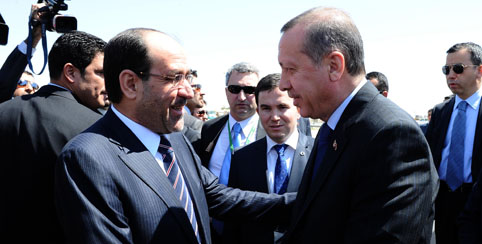The Middle East saluted the New Year with revolts and political turmoil. Crises seem to be never-ending despite the earlier hopes that the wave of revolutions could be as smooth as they were in Tunisia and Egypt. How is Turkey supposed to respond to turmoil in the Middle East to remain a relevant voice? The current crisis derives from the need for democratization and restructuring of the entire regional order in the Middle East and North Africa. The Arab Spring has created new challenges for all the international and regional actors involved. The challenges facing Turkey today, however, are not about “management” of the crisis but about Turkey’s increased stature in the region over the past decade. In other words, how Turkey manages the status and reputation it has already achieved and looks set to achieve in the future in the arena of foreign policy activism. This will determine whether the country is up to the task of creating a new regional order. In this endeavour, Turkey will be challenged intellectually to create an authentic political language. And this new language needs to find a way to accommodate certain ‘inconsistencies.’
The challenge
Three instances of crisis point to the main challenges of Turkish foreign policy. Confronted by a strong international liberal interventionist discourse in the case of Libya, Turkey had some difficulty in explaining itself cogently in its attempt to defend the Libyan people and their interests. While the AK Party government is used to dealing with the authoritarian republican language domestically, it found it harder to develop a sustained response to the domestic and foreign examples of liberal interventionist language. Liberal interventionism can be likened to authoritarian republicanism in Turkey in the way it claims to hold the moral high ground.
The Bahrain example carries with it risks in terms of relations with the Gulf countries and sectarian tensions. The chance for a Shiite majority hitherto politically under-represented to assume power is seriously feared in the Gulf due to gathering concern at growing Iranian influence. Turkey’s non-sectarian approach, exemplified in the Turkish Prime Minister’s visit to Iraq’s Shiite sites , following US-supported Saudi involvement in Bahraini affairs, was met with unease by the Gulf countries.![]()
In the Syrian example, Turkey was forced to offer a concrete solution, as the crisis there was much closer to home in many ways. Turkey had to consider the crisis in Syria in the context of its close economic relationship with Syria, Sunni-Alawite tensions, democratization, regional balance, and also more urgently the Kurdish question.
Urgent need for a new language
Having to deal simultaneously with such disconnected and diverse issues will be Turkey’s greatest challenge. A range of problems with very different types of actors from Yemen to Syria, from Libya to Iran will knock on Turkey’s door. It will get more complicated in time, if not impossible, to deal with all these issues in a ‘consistent’ manner. While Turkey will have to pursue a consistent foreign policy, it will also have to produce ‘creative’ solutions simultaneously. The dilemma for Turkey will be the tension between challenging the authoritarian and universalist moral discourse of liberal interventionism and surrendering to an authoritarian, self-serving, utilitarian language. How will it be possible for Turkey to produce a position that takes an ethical stance consistent with values it shares with other political actors without being locked into phony moralising? The solution to this political dilemma will define the ‘middle’ position for Turkish foreign policy. It will give its name to the New Turkey’s language.
The biggest challenge for ‘mid-size powers’ such as Turkey, who attempt to determine their political posi
In this article
- Domestic Policy
- Opinion
- 1986
- Arab
- Arab Spring
- Arabian peninsula
- Bahrain
- Egypt
- Global Actors | Local Actors
- gulf
- Iraq
- Islamic Republic of Iran
- Kurdish Community
- Kurdish Question
- Libya
- Libyan Crisis
- Middle East
- new
- North Africa
- Prime Minister
- Saudi Arabia
- SETA
- Spring
- Sunni
- Syria
- Syrian Civil War
- Syrian Conflict
- Syrian Crisis
- The
- Tunisia
- Turkish Foreign Policy
- Türkiye
- Türkiye's Foreign Policy
- Türkiye's Justice and Development Party | AK Party (AK Parti)
- Yemen

